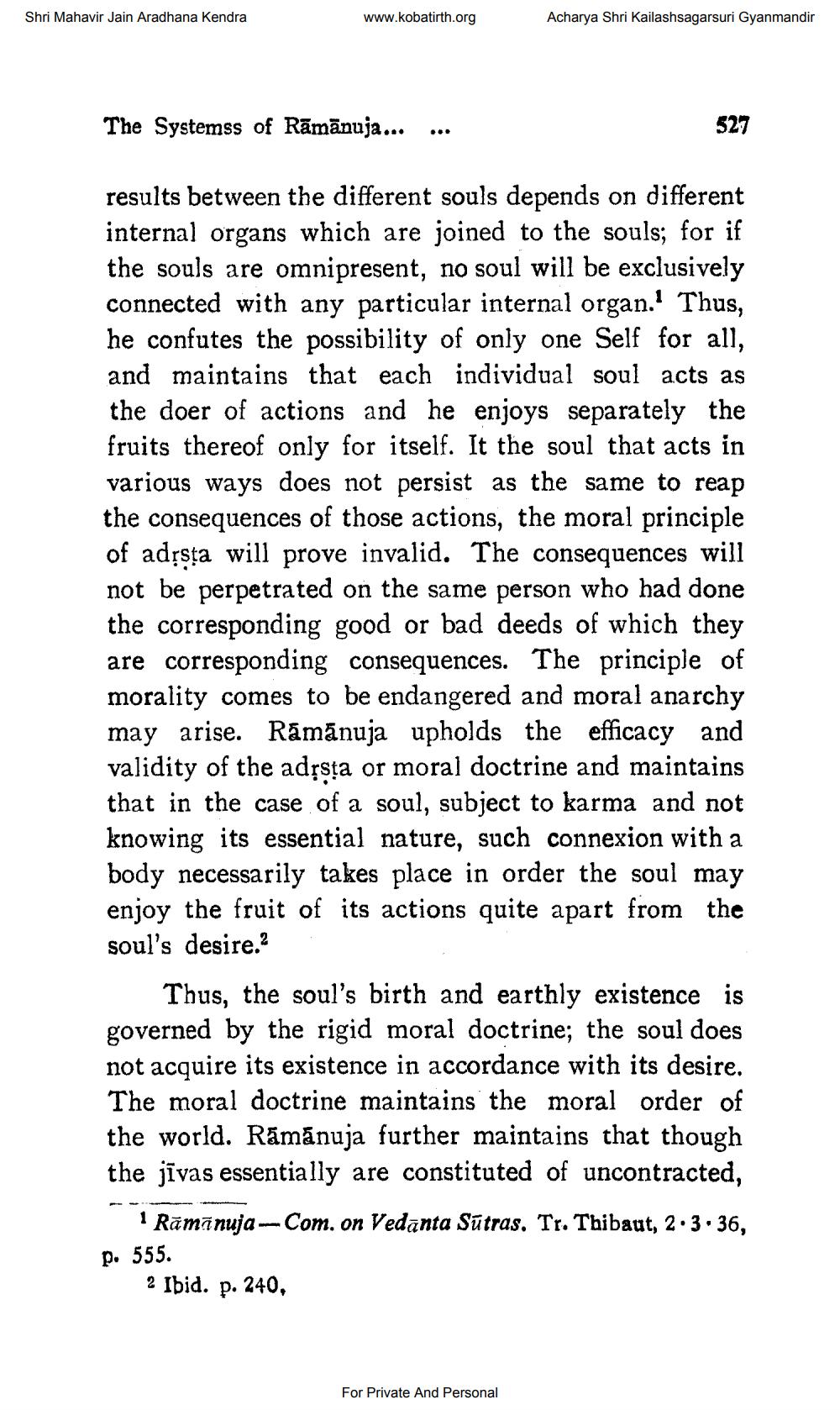________________
Shri Mahavir Jain Aradhana Kendra
www.kobatirth.org
Acharya Shri Kailashsagarsuri Gyanmandir
The Systems of Rāmānuja... ...
527
results between the different souls depends on different internal organs which are joined to the souls; for if the souls are omnipresent, no soul will be exclusively connected with any particular internal organ.' Thus, he confutes the possibility of only one Self for all, and maintains that each individual soul acts as the doer of actions and he enjoys separately the fruits thereof only for itself. It the soul that acts in various ways does not persist as the same to reap the consequences of those actions, the moral principle of adřsta will prove invalid. The consequences will not be perpetrated on the same person who had done the corresponding good or bad deeds of which they are corresponding consequences. The principle of morality comes to be endangered and moral anarchy may arise. Rāmānuja upholds the efficacy and validity of the adsșța or moral doctrine and maintains that in the case of a soul, subject to karma and not knowing its essential nature, such connexion with a body necessarily takes place in order the soul may enjoy the fruit of its actions quite apart from the soul's desire.
Thus, the soul's birth and earthly existence is governed by the rigid moral doctrine; the soul does not acquire its existence in accordance with its desire. The moral doctrine maintains the moral order of the world. Rāmánuja further maintains that though the jīvas essentially are constituted of uncontracted,
1 Rāmānuja --Com. on Vedanta Sūtras. Tr. Thibaut, 2.3.36, p. 555.
2 Ibid. p. 240.
For Private And Personal




